Infrastructure key to Asian tourism growth
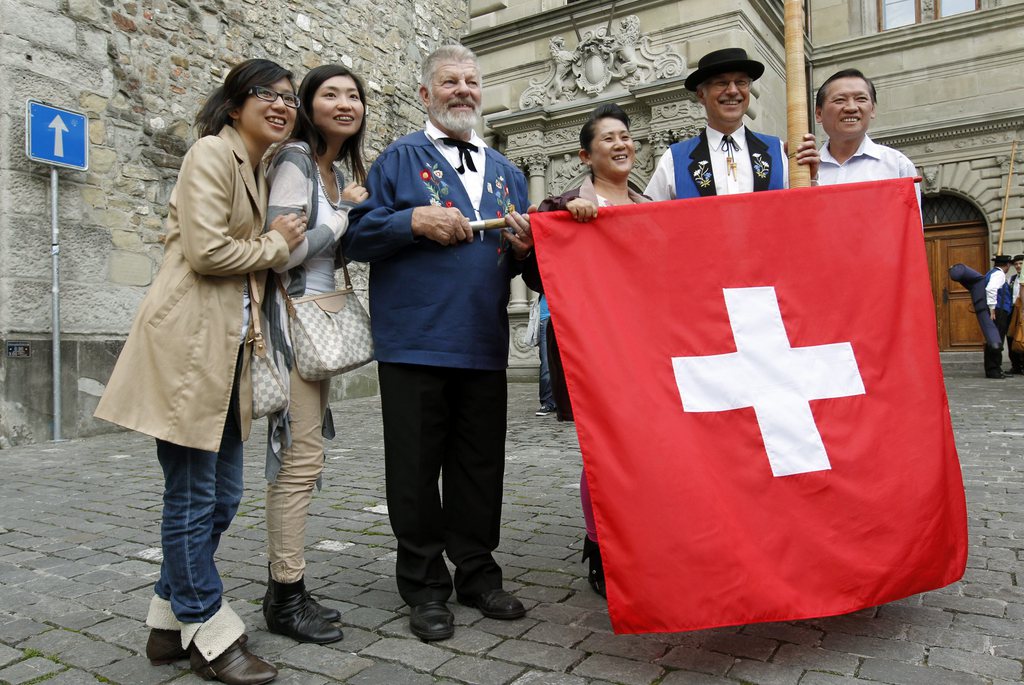
Switzerland needs to focus on adding chain hotels with more than 1,000 beds and training more Chinese-speaking travel guides if it wants to attract larger groups of tourists from China, according to travel director Hui Ni.
Ni, director general of the Grand China MICE travel service, spoke with swissinfo.ch about what it would take to attract more of those travellers to Switzerland.
swissinfo.ch: What are the Chinese people who travel to Europe generally like?
Hui Ni: I have been in the business for more than 20 years and according to my experience, many of them have already traveled extensively in southeast Asia, to Hong Kong or Macao for example, and are able to travel to faraway and expensive places like Europe. Today, young people travel more, especially “white collar” workers who have the financial means to do so.
swissinfo.ch: Why do the Chinese choose to visit Europe?
H.N.: As everyone knows, Europe has a long cultural history, beautiful landscapes, worldwide brands, and lots of shopping opportunities. Chinese tourists like to “collect countries” and if it were financially possible, they would like to visit every country in the world.
When they are visiting Europe for the first time, most Chinese tourists choose a travel package with many countries, and those who have visited Europe before tend to choose an offer focusing on just one or two countries. This also depends on where the tourists come from, because those who come from metropolises like Shanghai or Beijing prefer trips with a theme, like wine tasting, skiing, big parties, castle sightseeing or wellness. Most other people or those from smaller cities tend to choose offers that introduce them to Europe, but in general, there is a higher demand for luxury tours that are more and more elaborate.
The tour routes are becoming increasingly varied because there are now lots of cities that offer flights to and from China, such as Frankfurt, Munich, Northern Europe, Austria or Switzerland. Of course, the most travelled of these routes is Germany, France, Holland, Belgium and Luxembourg, and its availability depends on how many airline tickets the travel agencies have at their disposal.
In Switzerland, most Chinese tourists stop off in Zurich, Geneva or Interlaken.
swissinfo.ch: What are the most important aspects of a trip to Switzerland for Chinese tourists?
H.N.: First of all, nature, the mountains, the lakes, the meadows. It’s all beautiful. But it’s also important not to forget the small, charming villages either. And Swiss technology like watches is also of interest to Chinese visitors.
But the ease of obtaining a Schengen travel visa because of Switzerland’s membership in the zone has been a more important factor recently too.
swissinfo.ch: Why are Chinese tourists often able to obtain very good deals for food and lodging?
H.N.: For our needs, food and lodging are arranged by large travel agencies like Kuoni or sometimes other smaller companies. But in the cases of large-scale trips, such as a reward trip organized last year for 200 employees from the firm IDG, we collaborated with hotel groups to arrange prices.
If we want to receive a discount, it depends mostly on our long-term cooperation with hotel chains and availability. The more rooms they have available, the lower the prices will be, but sometimes the hotel location may be relatively far from the city centre. Discounts are offered by the larger suppliers, because with smaller businesses, it’s really hard to negotiate the price. That’s why there is a type of trip that depends on the clients’ purchases which doesn’t cost too much because it’s dependent on the commissions from sales, a practice that is strictly forbidden in China.
Right now there are people who think it is better to spend money on shopping than on a hotel room or on food. I think that will slowly evolve and our next step will be improving luxury tours. Many clients don’t want to travel in groups and are looking for authentic itineraries, and for them cost is not an issue.
swissinfo.ch: Why do Chinese travel agencies still prefer to work with Chinese businesses and provide tourists with Chinese food, even in a different country?
H.N.: The main reason is a lack of flexibility on the part of local agencies in the country they are visiting. Chinese people are not very organised, sign up late, and foreigners have a hard time adjusting to that.
But today, many international hotel chains are adapting to Chinese clients. Hilton Hotels are doing it the best so far by making a Chinese breakfast with soy milk, Chinese pastries and marinated vegetables. Chinese culinary tastes will never change (laughs). Many hotels pay special attention to offering “Chinese-style” services, such as including slippers or a water boiler in rooms. It’s essential.
swissinfo.ch: What advice do you give to Swiss hotels to help them attract Chinese clients?
H.N.: First of all, they should be prepared to receive a lot of guests. One time, we suggested that a large group go to Switzerland, but the client said they would be 900 people and he didn’t think Switzerland could accommodate them. Eventually, they chose Munich. In Switzerland, there are many small hotels with lots of character, but they don’t work together. Compared to a country like Australia, Switzerland has advantages because you can access many European countries to see different landscapes.
But there would have to be one or two hotels per city with at least 1,000 beds and that’s why Switzerland should invest in that type of infrastructure, because we need large international hotel chains.
Secondly, there are very few local guides who speak good Chinese in Switzerland. We have to get these guides from France, Germany and Italy, but they don’t know Switzerland very well.
On top of that, the resources of Chinese service providers in Switzerland are also limited, maybe because of the different linguistic regions. Sometimes, the information that clients find themselves on the Internet is more abundant than that provided by the professional guides.
If the issues I mentioned can be resolved, the Swiss hotel system will certainly not have to worry about attracting Chinese clients or luxury tours and the growth of Chinese tourism in Switzerland will be exponential.
What Swiss cities do Chinese tourists frequent? Lucerne, Zurich, Interlaken and Geneva of course, but surprisingly, the Zurich suburb of Opfikon comes in fifth.
“Chinese tourists don’t choose to stay in Opfikon for any particular reason, except that it’s very close to Zurich airport and it has many hotel rooms at reasonable prices that can accommodate large groups of tourists,” Simon Bosshart, the director of Asia-Pacific markets for Swiss Tourism, told swissinfo.ch.
During the first eight months of 2012, Chinese tourists spent a total of 487,400 nights in Switzerland, up 26.5 per cent from 2011, according to the Federal Statistics Office.
Chinese tourism numbers are still behind those from Germany, Great Britain and France, but those traditional sources of tourism in Switzerland are shrinking.
(Translated from Chinese by Jie Guo Zehnder)

In compliance with the JTI standards
More: SWI swissinfo.ch certified by the Journalism Trust Initiative

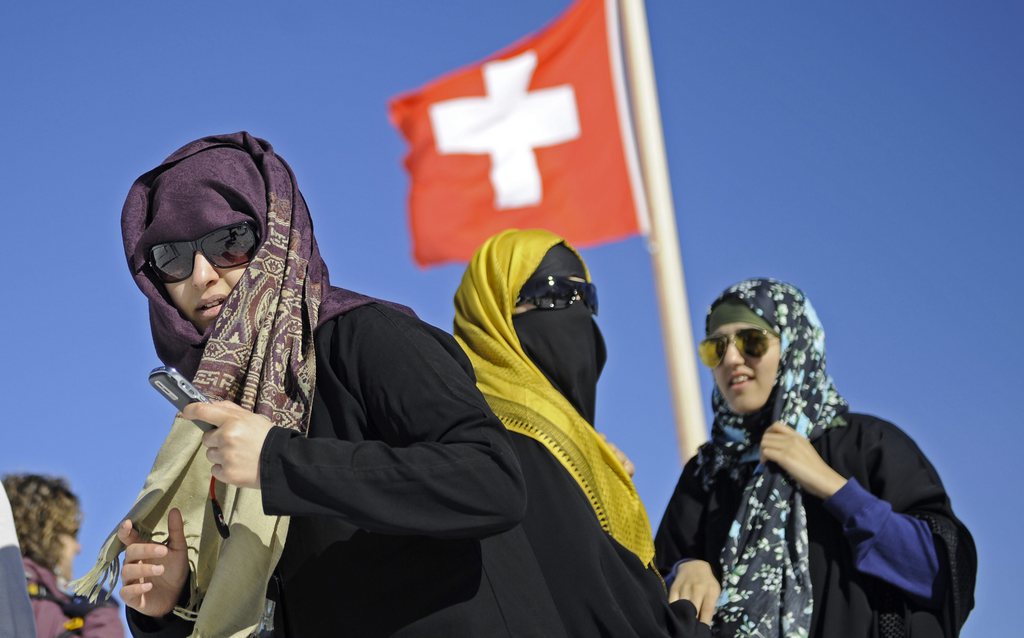
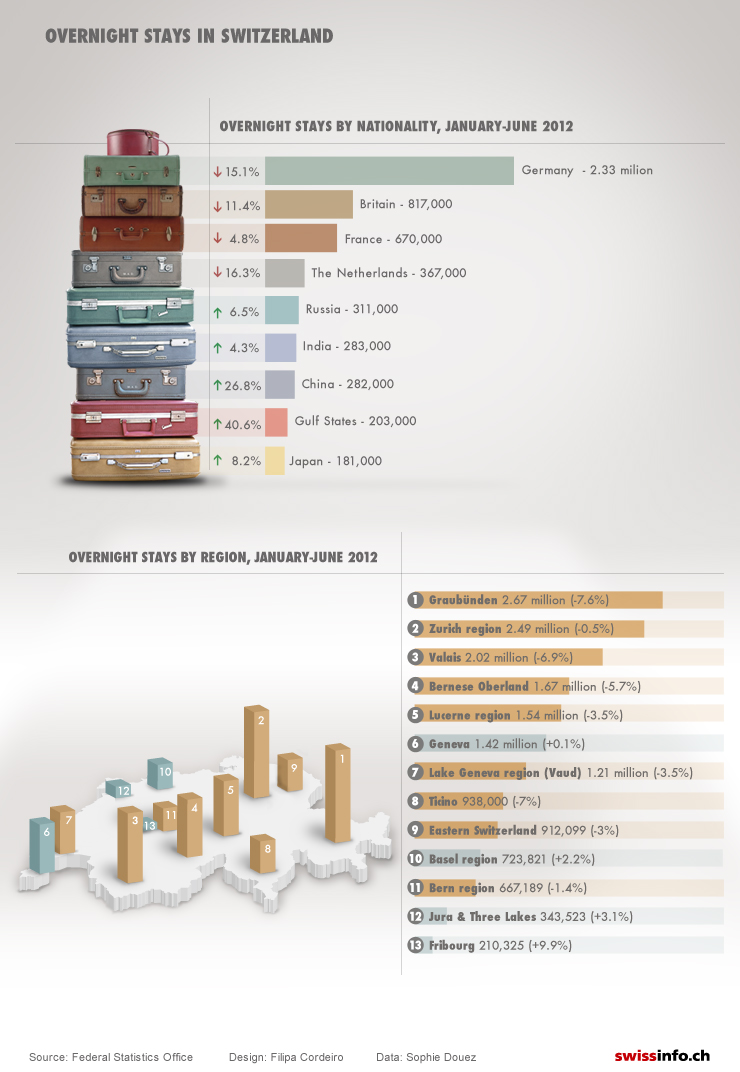
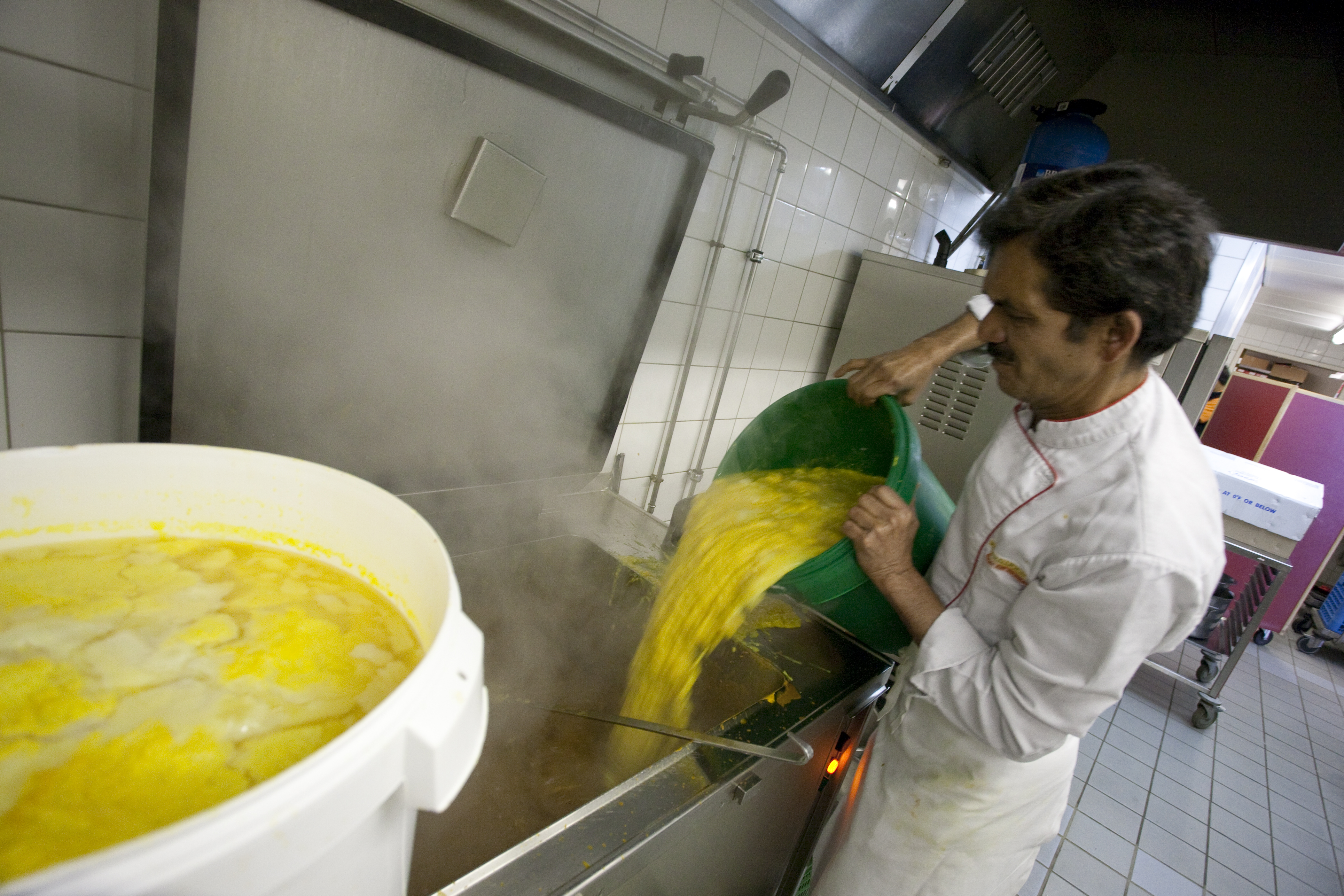
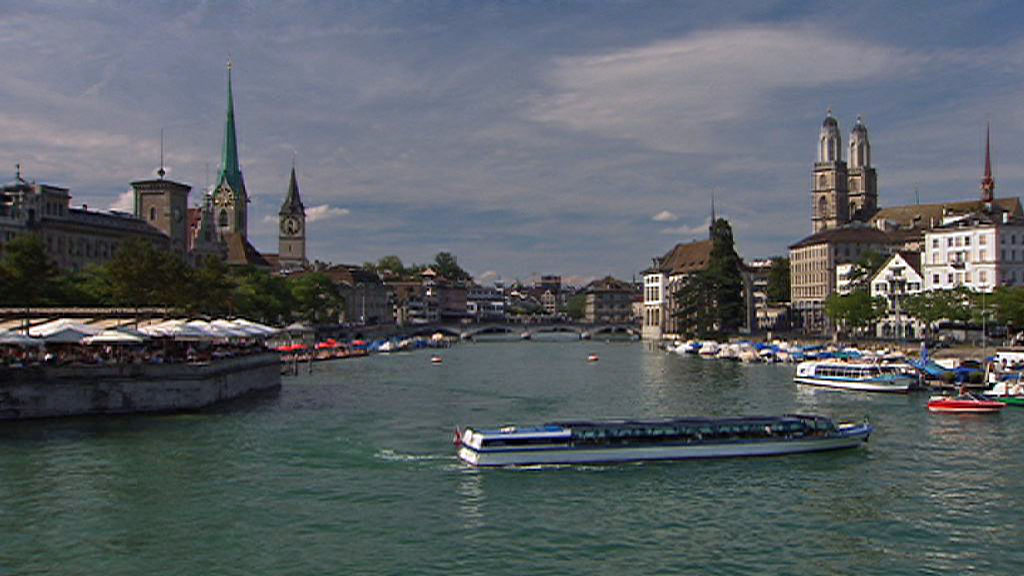
You can find an overview of ongoing debates with our journalists here. Please join us!
If you want to start a conversation about a topic raised in this article or want to report factual errors, email us at english@swissinfo.ch.